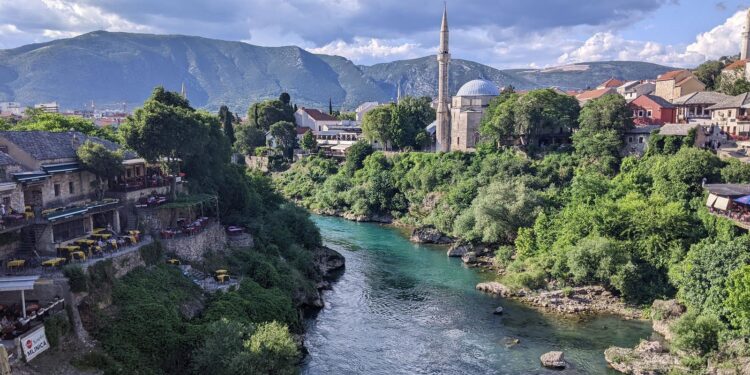Tensions in the Balkans are rising once more as the resurgence of Serbian nationalism in Bosnia threatens to unravel decades of fragile peace. Analysts warn that the explosive mix of ethnic divisions, political deadlock, and nationalist rhetoric could destabilize the region and ignite a broader conflict that reverberates across Europe. This renewed crisis underscores the persistent challenges facing the continent’s most volatile neighborhood and poses urgent questions about the effectiveness of international diplomacy in preventing another devastating war.
Rising Serbian Nationalism and Its Threat to Balkan Stability
In recent years, the resurgence of Serbian nationalism has intensified political tensions throughout the Balkans, threatening to unravel the fragile peace established after the Yugoslav wars of the 1990s. The nationalist rhetoric, largely fueled by political elites seeking to consolidate power, often glorifies a revisionist history that denies the sovereignty of neighboring states and undermines Bosnia and Herzegovina’s multiethnic framework. This revival is characterized by increasing calls for the unification of Serb-majority territories, directly challenging the Dayton Agreement that once stabilized the region. Such ambitions have alarmed both regional governments and international actors, raising fears that unchecked nationalist fervor could ignite new conflicts along ethnic lines.
The destabilizing impact extends beyond political statements, manifesting in several tangible ways:
- Militarization: Increased military budgets and paramilitary training exercises near contentious borders signal preparation for potential conflict.
- Disinformation campaigns: Propaganda targeting ethnic minorities and international institutions exacerbates mistrust and radicalizes populations.
- Political obstruction: Serbian nationalist leaders often block reforms aimed at fostering integration and cooperation within Bosnia’s complex governance system.
| Indicator | Current Trend | Potential Consequence | ||||||||||||||||||||||||||||||||
|---|---|---|---|---|---|---|---|---|---|---|---|---|---|---|---|---|---|---|---|---|---|---|---|---|---|---|---|---|---|---|---|---|---|---|
| Ethnic Tensions | Rising | Inter-communal violence | ||||||||||||||||||||||||||||||||
| Political Fragmentation | Summary The resurgence of Serbian nationalism in the Balkans is creating significant political instability, mainly impacting Bosnia and Herzegovina’s multiethnic peace framework. This nationalism is driven by political elites who use revisionist history and nationalist rhetoric to strengthen their hold on power. Key elements include:
The consequences are alarming regional governments and international observers due to:
Table Summary (Incomplete in prompt but inferred)| Indicator | Current Trend | Potential Consequence | AnalysisThe revival of Serbian nationalism poses a serious threat to the relatively stable peace engineered after the brutal Yugoslav Wars. Efforts to revise history and reject the legitimacy of neighboring states undermine decades of reconciliation and institution building. The militarization and political obstruction indicate a lack of willingness to engage in peaceful cooperation, risking a return to open ethnic conflict. Disinformation campaigns serve to poison societal trust and democratic processes, making dialogue and consensus-building more difficult. If these trends continue unchecked, they could lead to renewed violence that would destabilize the entire Balkan region, potentially drawing in external powers given the area’s strategic importance. If you would like, I can help provide suggestions on regional policy responses, historical context, or further elaboration on any specific aspects. The Fragile Political Balance in Bosnia and Its Vulnerability to ConflictIn Bosnia, the post-Dayton framework that has long kept ethnic divisions in uneasy equilibrium is increasingly showing cracks. The tripartite power-sharing system, designed to appease the three major groups-Bosniaks, Croats, and Serbs-now faces relentless strain as nationalist rhetoric resurges, particularly from Republika Srpska’s leadership. This unraveling threatens to undermine not only Bosnia’s internal cohesion but also the stability of the entire Western Balkans region, which remains a strategic fault line for European security. Key factors contributing to this volatility include:
|
















